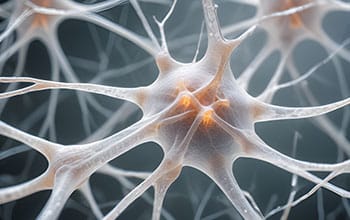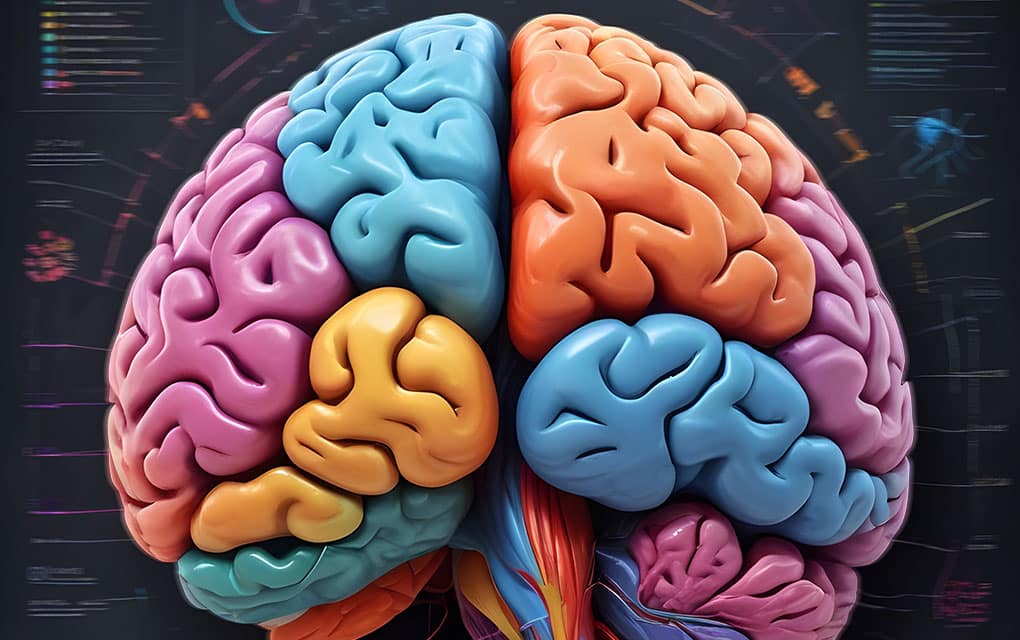Dementia with Lewy bodies (DLB): Causes, Symptoms, Progression and Treatment
Everything you need to know about Lewy body dementia
Dementia with Lewy bodies (DLB) – Causes:
 Lewy body dementia, also known as Dementia with Lewy bodies (DLB), is a form of dementia characterized by the presence of abnormal protein accumulations, known as Lewy bodies, in the brain. These Lewy bodies are made up of the protein alpha-synuclein and can accumulate in different parts of the brain, leading to a variety of symptoms. In addition to genetic predisposition and familial clustering, environmental factors may play a role in the development of the disease. In particular, certain toxins and environmental pollutants have been associated with an increased risk. However, the main mechanism of the disease is the formation of Lewy bodies in the brain. The formation of these Lewy bodies disrupts the normal function of neurons and leads to a progressive loss of cognitive abilities.
Lewy body dementia, also known as Dementia with Lewy bodies (DLB), is a form of dementia characterized by the presence of abnormal protein accumulations, known as Lewy bodies, in the brain. These Lewy bodies are made up of the protein alpha-synuclein and can accumulate in different parts of the brain, leading to a variety of symptoms. In addition to genetic predisposition and familial clustering, environmental factors may play a role in the development of the disease. In particular, certain toxins and environmental pollutants have been associated with an increased risk. However, the main mechanism of the disease is the formation of Lewy bodies in the brain. The formation of these Lewy bodies disrupts the normal function of neurons and leads to a progressive loss of cognitive abilities.
Dementia with Lewy bodies (DLB) – Symptoms:
The symptoms of Lewy body dementia are extremely varied and can include a wide range of cognitive, motor and neuropsychiatric problems. In addition to memory loss, problems with attention and spatial orientation, hallucinations can also occur, which are often very realistic and frightening for those affected. In addition to motor symptoms such as stiffness, tremor and gait disturbances, sleep disorders such as REM sleep behavior disorder, in which sufferers make unusual movements in their sleep, can occur. Neuropsychiatric symptoms such as depression, anxiety and mood swings are also common.
Dementia with Lewy bodies (DLB) – Progression:
The course of Lewy body dementia is often characterized by alternating periods of deterioration and then temporary stability. Symptoms can vary from day to day and can worsen suddenly and rapidly, especially during periods of delirium. However, there are also times when symptoms may remain stable or even temporarily improve. The course of the disease can vary greatly from person to person and is not always predictable. In addition, concomitant diseases such as cardiovascular diseases or infections can influence the course of Lewy body dementia.
Dementia with Lewy bodies (DLB) – Treatment:
The treatment of Lewy body dementia is complex and requires an individualized approach. Medications such as cholinesterase inhibitors are often prescribed to treat cognitive symptoms and improve thinking ability. Parkinson’s medications such as levodopa are used to help relieve motor symptoms. Non-drug therapies such as physiotherapy, occupational therapy and speech therapy are also said to be helpful in improving the quality of life of those affected and promoting their independence. Close collaboration with a multidisciplinary team of doctors, therapists and care professionals is crucial to ensure the best possible treatment.
Dementia with Lewy bodies (DLB) – Summary:
Lewy body dementia is a complex and progressive disease caused by the formation of Lewy bodies in the brain. The symptoms are varied and can include cognitive, motor and neuropsychiatric problems. The course of the disease is often unpredictable and can vary from person to person. Treatment focuses on relieving symptoms and improving quality of life. It involves a combination of drug and non-drug approaches. Early diagnosis and holistic care are crucial in order to give those affected the best possible quality of life.




